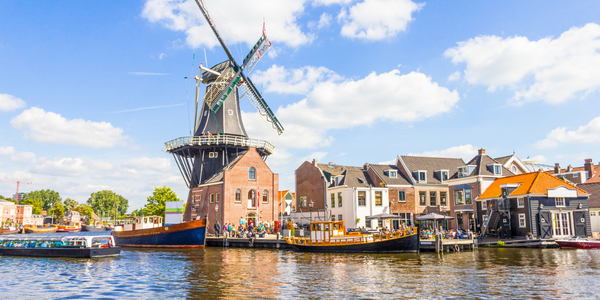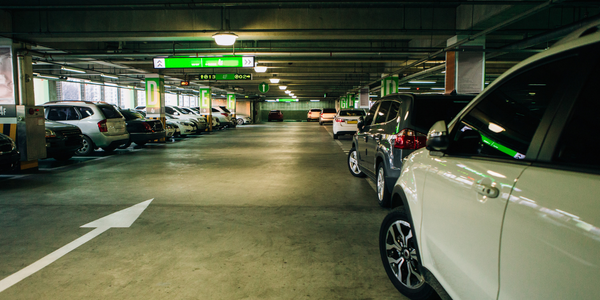City of Laredo Modernizes Parking Infrastructure with IPS Group's Advanced Solutions
公司规模
Large Corporate
地区
- America
国家
- United States
产品
- IPS M5™ single-space parking meters
- Data Management System (DMS)
- Vehicle detection sensors
技术栈
- Wireless Networking
- Real-time Data Management
实施规模
- Departmental Deployment
影响指标
- Customer Satisfaction
- Productivity Improvements
- Revenue Growth
技术
- 功能应用 - 远程监控系统
- 网络与连接 - 无线局域网
适用行业
- 城市与自治市
适用功能
- 设施管理
- 商业运营
用例
- 智慧城市运营
- 预测性维护
- 远程资产管理
服务
- 软件设计与工程服务
- 系统集成
关于客户
The City of Laredo, located in Texas, serves as a crucial gateway for trade between the United States and Mexico. As the principal port of entry into Mexico, Laredo sees nearly 12,000 commercial trucks crossing its international bridges daily. The city's strategic location on the southern end of the I-35 freeway makes it an essential hub for vehicle traffic and tourism. Laredo's bustling downtown area attracts thousands of tourists who come to shop and dine, nearly doubling the city's population during the day. Tourism plays a vital role in Laredo's economic vitality, prompting the city to prioritize customer convenience. The City of Laredo is committed to enhancing the experience of its visitors and residents by modernizing its infrastructure and providing efficient services. With a focus on improving customer satisfaction, the city has embarked on initiatives to upgrade its parking systems and offer more convenient payment options. By partnering with innovative companies like IPS Group, Inc., Laredo aims to maintain its status as a key player in international trade while ensuring a positive experience for all who visit.
挑战
The City of Laredo faced significant challenges with its outdated parking infrastructure, which relied on old electromechanical coin-only meters. These meters were prone to maintenance issues such as coin jams, leading to customer inconvenience and lost revenue. Additionally, the lack of alternative payment options resulted in negative customer experiences, as many received parking citations due to not having the correct change. In an effort to enhance customer convenience and modernize its parking infrastructure, the City sought to introduce additional payment options like credit and debit cards. However, the initial vendor contracted in 2011 failed to deliver the required products and results, leading to delays and technical issues. Consequently, the City terminated the contract and issued a second RFP in 2013, eventually partnering with IPS Group, Inc. after a successful trial.
解决方案
To address the challenges faced with its outdated parking infrastructure, the City of Laredo partnered with IPS Group, Inc. to implement a modernized parking solution. The new system included the installation of 300 IPS M5™ single-space parking meters and 300 vehicle detection sensors in the downtown area. These meters offer enhanced payment options, including credit/debit card payments and future pay-by-cell capabilities. The meters are wirelessly networked to a state-of-the-art Data Management System (DMS), providing the city with real-time data on meter faults, revenue, and vehicle occupancy. The vehicle detection sensors, when paired with the IPS meters, enable unique functionalities such as the meter reset function, which resets the meter to zero when a vehicle departs, increasing revenue by an estimated 25%-30%. The DMS also allows for guided enforcement by providing real-time data on paid status, occupancy, and spaces set to expire soon. This information is used to direct enforcement officers to spaces in violation, streamlining operations and improving efficiency. The system's advanced reporting capabilities have resulted in more tickets issued but fewer contested citations, as the city can provide accurate data on parking transactions. Additionally, the large graphical LCD display on the meters supports multiple languages, catering to Laredo's diverse population.
运营影响
数量效益

Case Study missing?
Start adding your own!
Register with your work email and create a new case study profile for your business.
相关案例.

Case Study
Turning A Stadium Into A Smart Building
Honeywell created what it called the “intelligent system” for the National Stadium in Beijing, China, turning the venue for the opening and closing events at the 2008 Summer Olympics into a “smart building.” Designed by highly controversial artist Ai Weiwei, the “Bird’s Nest” remains one of the most impressive feats of stadium architecture in the world. The 250,000 square meter structure housed more than 100,000 athletes and spectators at a time. To accommodate such capacity, China turned to Honeywell’s EBI Integrated Building Management System to create an integrated “intelligent system” for improved building security, safety and energy efficiency.
.png)
Case Study
Smart Street Light Network (Copenhagen)
Key stakeholders are taking a comprehensive approach to rethinking smart city innovation. City leaders have collaborated through partnerships involving government, research institutions and solution providers. The Copenhagen Solutions Lab is one of the leading organizations at the forefront of this movement. By bringing together manufacturers with municipal buyers, the Copenhagen Solutions Lab has catalyzed the development and deployment of next-generation smart city innovations. Copenhagen is leveraging this unique approach to accelerate the implementation of smart city solutions. One of the primary focus areas is LED street lighting.

Case Study
Buoy Status Monitoring with LoRa
The Netherlands are well-known for their inland waterways, canals, sluices and of course port activities. The Dutch Ministry of Infrastructure indicates that there are thousands of buoys and fixed items in and near water environments that would profit from IoT monitoring. One of the problems with buoys for example, is that they get hit by ships and the anchor cable breaks. Without connectivity, it takes quite some time to find out that something has happened with that buoy. Not to mention the costs of renting a boat to go to the buoy to fix it. Another important issue, is that there is no real-time monitoring of the buoys at this moment. Only by physically visiting the object on the water, one gains insight in its status.

Case Study
Barcelona Case Study
Barcelona’s heavy traffic and its associated high levels of pollution were the primary factors that motivated some companies and universities to work on strategies for improving traffic in the city centre. Bitcarrier is one of the technologies involved in the In4Mo Project, whose main objective is to develop the applications that form the core of smart mobility, one of the fundamental pillars of the smart city concept.

Case Study
China Mobile Smart Parking
Smart Parking, powered by NB-IoT technology, is making it easier for drivers to find free parking spots. Cities can better manage their parking assets and maximize the revenue available to them as a result. Drivers searching for parking create congestion and pollution by circling and hunting for available parking. Smart Parking services are able to significantly ease these problems by guiding a driver directly to a parking space.







